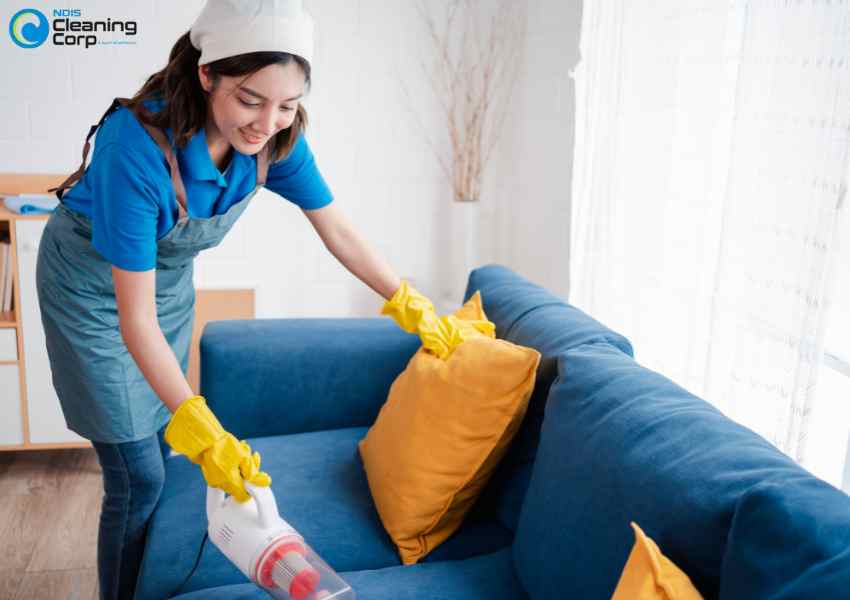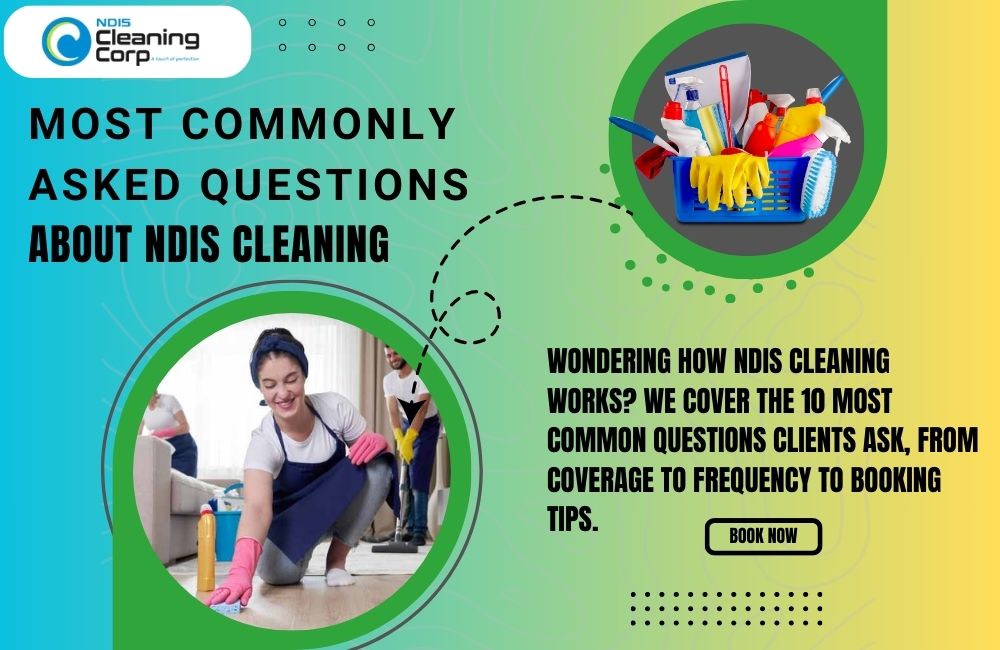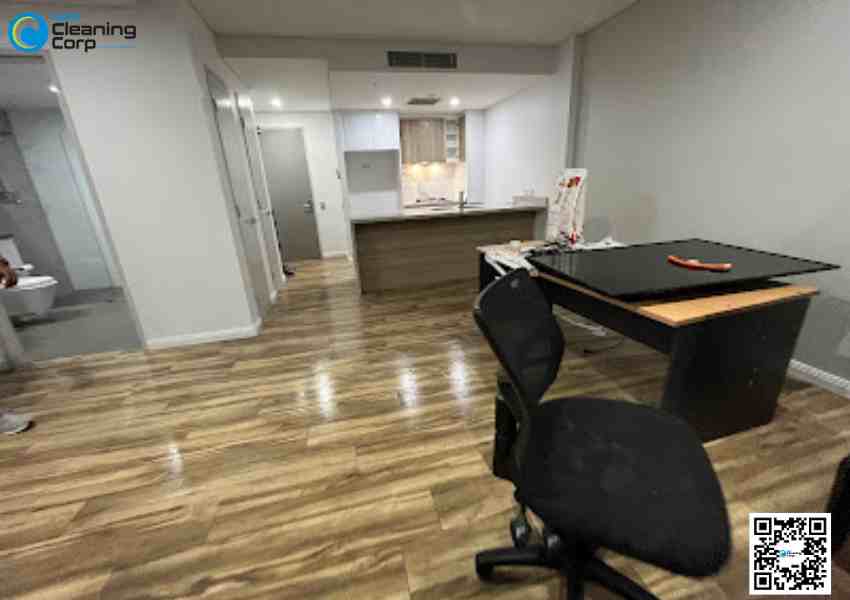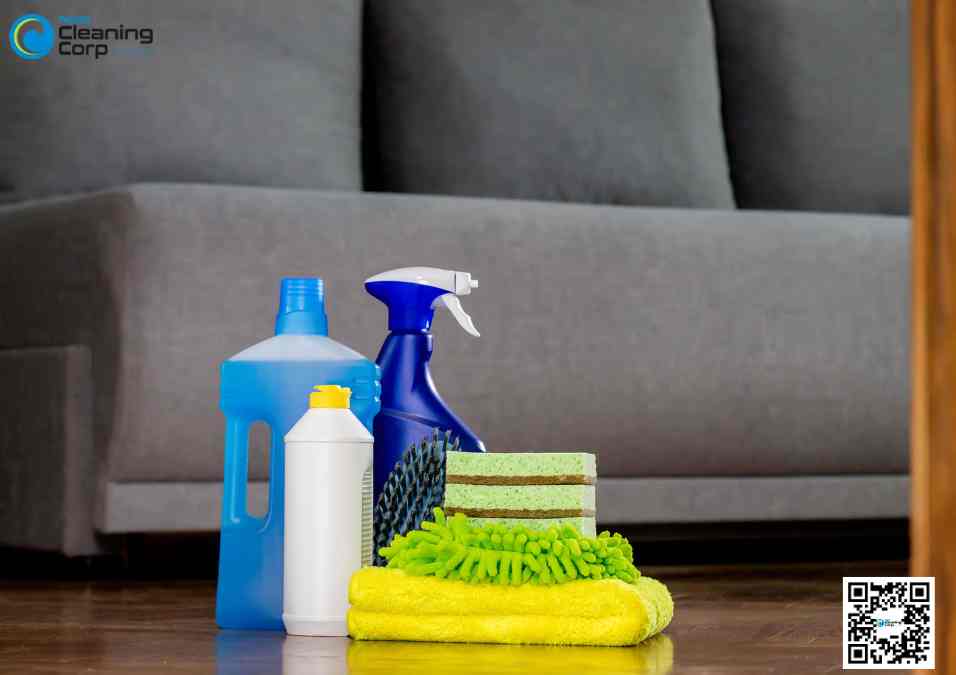Does the NDIS Fund Cleaning Services?
Yes. The NDIS does fund cleaning services — but it...
Now, you might be wondering, What exactly is NDIS? The National Disability Insurance Scheme (NDIS) is a vital initiative in Australia designed to support individuals with disabilities, ensuring they have access to the services and resources they need to live fulfilling lives. One of the key aspects of the NDIS is promoting shared living arrangements, which provide a supportive environment for individuals who may require additional assistance.
But here’s the thing: while the NDIS focuses on empowering these individuals, we can’t overlook the importance of cleaning in group homes. A clean living space isn’t just about aesthetics; it’s crucial for the well-being of residents. Imagine waking up every day in a tidy, fresh environment. It sets a positive tone and creates a sense of comfort. Effective cleaning goes beyond just making things look nice—it directly contributes to safety, hygiene, and overall quality of life.
At NDIS Cleaning Corp., we believe that maintaining a clean home is a fundamental right. It’s about ensuring that residents feel safe and secure in their environment. After all, when a space is clean, it fosters a sense of community and well-being that everyone deserves.

Cleanliness plays a vital role in health and safety within group homes. Over the years, I’ve witnessed firsthand how a well-maintained environment can significantly impact residents’ health. For instance, I remember a group home in Melbourne that was struggling with a flu outbreak. The staff reached out to us for help, and we implemented a thorough cleaning schedule, focusing on high-touch areas like doorknobs, light switches, and communal spaces.
Within just a few days of our cleaning services, not only did the flu cases decrease, but the overall morale of the residents improved. They felt better in a clean space, knowing that the risk of germs was minimized. It’s stories like these that fuel my passion for this work.
But the benefits of cleanliness extend beyond just physical health. A clean environment has a profound emotional impact on residents and staff alike. When you walk into a well-kept space, it feels welcoming. It fosters positive interactions among residents, which is essential for building a strong community.
I often talk with staff members who share how the clean environment lifts their spirits. They find it easier to engage with residents, which leads to better communication and relationships. A tidy space isn’t just about sanitation; it’s about creating a supportive atmosphere where everyone feels valued.
Now, let’s dive into the nitty-gritty of NDIS cleaning standards. The NDIS has set specific cleaning requirements to ensure that group homes maintain a high level of hygiene and safety. These standards are designed to protect the health and well-being of residents, and they cover various aspects of cleaning, including frequency, methods, and products used.
As cleaning providers, it’s our job to adhere to these standards meticulously. We understand that each group home may have different needs, which is why we take the time to assess and customize our services accordingly. By closely following the NDIS cleaning standards, we not only keep the spaces clean but also ensure compliance, giving peace of mind to both residents and staff.
Cleaning shared living spaces comes with its own set of unique challenges. Each home is different, with varying layouts, numbers of residents, and specific needs. For instance, we often find that homes with multiple shared bathrooms require more frequent cleaning and specialized attention.
That’s why we at NDIS Cleaning Corp. pride ourselves on creating customized cleaning plans. We listen to the needs of the group home staff and residents, tailoring our services to fit their specific situations. For example, we might develop a cleaning schedule that includes deep cleans every two weeks while maintaining light cleans weekly to keep the space fresh and welcoming.
I remember working with a group home in Brisbane that housed residents with varying levels of mobility. We designed a plan that focused on ease of access, ensuring common areas were always clear and that all cleaning products were safe and suitable for their needs. The staff noticed a significant improvement in residents’ satisfaction and participation in communal activities after we implemented our tailored plan.
When it comes to NDIS cleaning in shared living spaces, there are some best practices that can really make a difference in promoting hygiene and safety.
Effective Cleaning Techniques
First off, let’s talk about cleaning techniques. One of the most effective methods we use is the two-step cleaning process. This involves first using a detergent to break down dirt and grime, followed by disinfecting surfaces to kill germs. For example, when we clean kitchens and bathrooms, we focus on high-touch areas like taps, light switches, and doorknobs. These are the hotspots for germs, and a thorough cleaning process here ensures that we minimize the risk of illness among residents.
Another technique we implement is the use of microfiber cloths. I can’t stress enough how great these are! They’re not only more effective at trapping dirt and bacteria, but they’re also reusable, which makes them an eco-friendly choice. I remember a specific case where a group home in Sydney adopted our microfiber approach. After just a month, they noticed a significant drop in allergies and respiratory issues among the residents. It’s amazing how a small change can yield big results!
Eco-Friendly Products
Speaking of eco-friendly choices, I’m a huge advocate for using cleaning products that are not only effective but also safe for the environment and the residents. At NDIS Cleaning Corp., we prioritize biodegradable and non-toxic cleaners. Not only do they clean effectively, but they also eliminate harmful fumes and chemicals that could affect sensitive individuals.
For example, we use plant-based disinfectants that are proven to kill 99.9% of germs without the harsh chemicals you often find in conventional products. I recall a group home that was experiencing issues with residents who had respiratory sensitivity. After we switched to eco-friendly products, their symptoms decreased dramatically. It just goes to show how our choices can positively impact those we serve.
Maintaining Cleanliness Between Professional Cleanings
Now, let’s talk about maintaining cleanliness between our professional cleanings. One of the best tips I can give is to encourage a cleaning routine among the residents and staff. Simple daily tasks like wiping down surfaces after meals, putting away personal items, and taking out the trash can go a long way in keeping spaces tidy.
Additionally, I recommend having designated cleaning “champions” among the residents. These individuals can take ownership of specific areas, like the lounge or kitchen, and help keep them organized. It fosters a sense of community and responsibility, and I’ve seen how much pride residents take in maintaining their shared spaces.
Training our cleaning staff is a crucial element of ensuring we meet NDIS cleaning protocols. I often tell my team that they are not just cleaners; they are the frontline warriors in maintaining the health and well-being of the residents.
We provide comprehensive training on NDIS cleaning standards, including proper techniques, product usage, and safety protocols. This ensures that our team is well-equipped to handle the unique challenges of shared living spaces. I’ve seen firsthand how this training can empower our staff. One of our cleaners, Lisa, started as a part-time employee and embraced the training wholeheartedly. Over time, she became a team leader, implementing new cleaning strategies and inspiring her colleagues. Her enthusiasm brought a refreshing energy to our team, and the residents noticed the difference!
Involving residents in the cleaning process is another fantastic way to foster a sense of ownership and responsibility. It’s not just about keeping the place tidy; it’s about creating a community where everyone contributes.
One of the initiatives we’ve implemented is a weekly cleaning day, where residents participate in light cleaning tasks, such as dusting or organizing shared areas. We turn it into a fun activity by adding music and encouraging teamwork. Residents share stories and laughter as they clean, which strengthens their bonds and creates a warm atmosphere.
For example, in a group home in Perth, we started a “cleaning challenge” where residents could earn points for completing tasks. At the end of the month, the resident with the most points could choose a group outing or activity. The competition was friendly, and the excitement it generated made cleaning enjoyable rather than a chore!
What are the specific cleaning requirements under NDIS for group homes?
The NDIS requires group homes to maintain high standards of cleanliness, focusing on hygiene, safety, and accessibility. This includes routine cleaning of common areas, bathrooms, and kitchens to prevent illness and ensure a safe living environment.
How can group homes ensure compliance with NDIS cleaning standards?
Group homes can ensure compliance by partnering with certified cleaning providers who are familiar with NDIS standards. Regular audits and feedback from residents and staff can also help maintain these standards.
What are the best cleaning products recommended for shared living spaces?
The best cleaning products are those that are biodegradable, non-toxic, and effective against germs. Plant-based disinfectants and eco-friendly detergents are excellent choices for maintaining a safe environment.
How often should group homes schedule professional cleanings?
Professional cleanings should be scheduled at least weekly, with additional deep cleans every month. However, the frequency may vary based on the number of residents and specific needs of the home.
How can residents be encouraged to participate in maintaining cleanliness?
Encouraging participation can be achieved through engaging activities, recognition programs, and by assigning specific roles or tasks to residents. Making cleaning a communal and enjoyable experience fosters pride in their living environment.
To wrap things up, the significance of NDIS cleaning for shared living environments cannot be overstated. A clean, safe living space is essential for the well-being of residents and staff alike. It enhances their quality of life, fosters a sense of community, and ultimately contributes to better health outcomes.
I encourage all group homes to adopt these best practices and find ways to involve residents in maintaining their spaces. Let’s work together to create safe, clean environments that everyone can take pride in. And if you have any cleaning success stories, I’d love to hear them—let’s inspire each other!

Yes. The NDIS does fund cleaning services — but it...

Alright, let’s get straight into it. These are the questions...

NDIS cleaning services are specifically designed to cater to the...

The role of professional cleaning in maintaining a safe and...

Studies consistently show that living in a clutter-free, organized space...